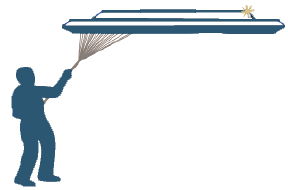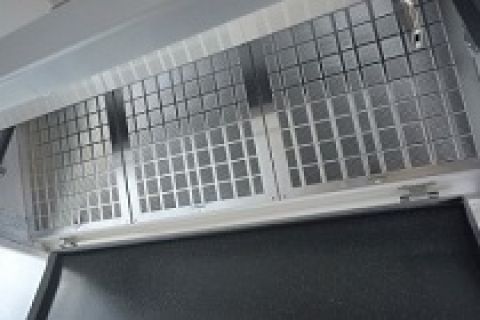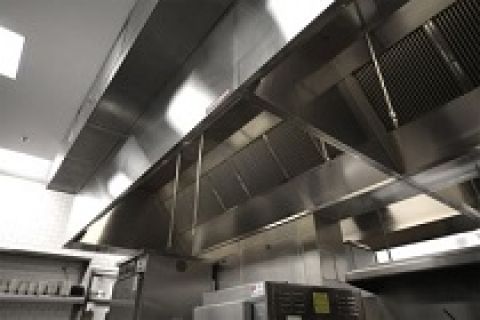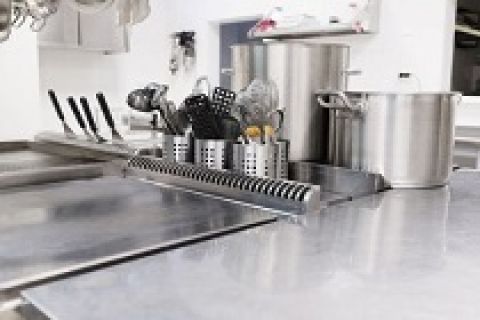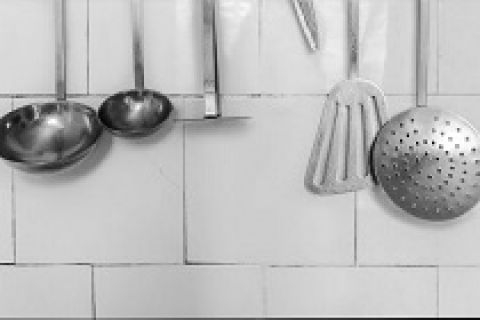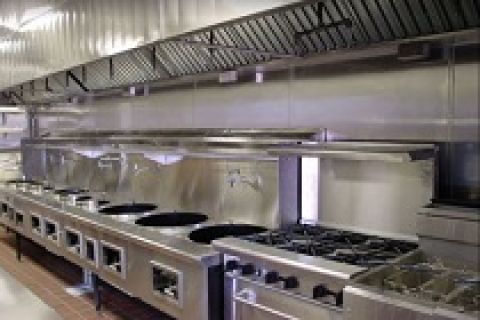Grease Management Tips for Restaurant Cleanliness & Fire Prevention
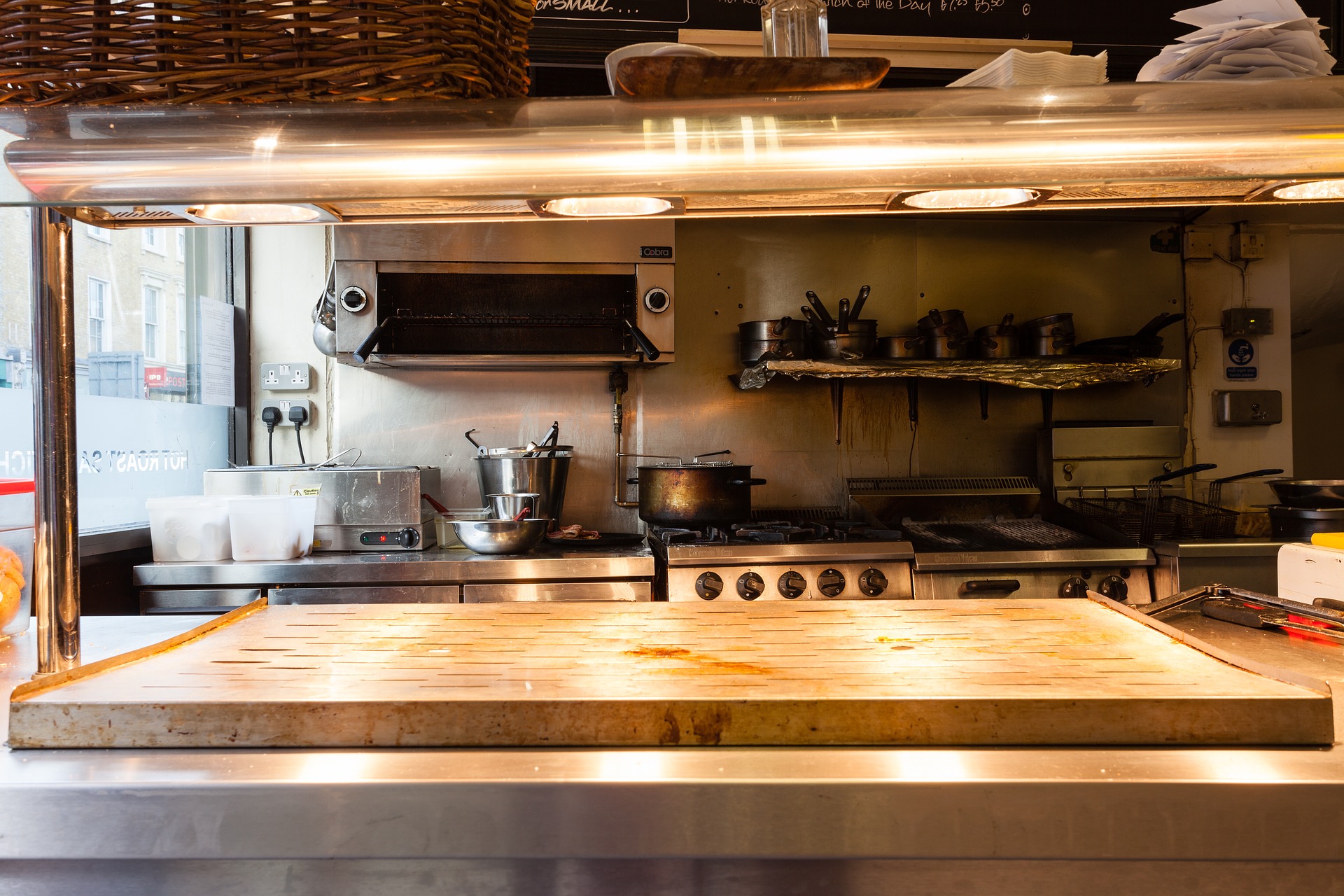
Hazards of Indoor Grease Buildup
The average restaurant produces copious amounts of waste in the form of grease on a daily, weekly, monthly, and yearly basis. While it’s easy to let grease management fall by the wayside, especially as you deal with all the stress that comes with running a busy restaurant, forgoing the grease cleanup is a mistake. These are some of the issues you are likely to run into if you allow the grease to pile up out of control.– Enhanced Risk of Bodily Harm
Grease can easily find its way onto your tile floor. When that happens, watch out. Employees can slip and slide and even fall down, leading to an expensive liability issue. OSHA regulations for restaurant safety require you, as the restaurant owner or manager, to create a safe working environment that is free of hazards like the accumulation of grease that could then go on to cause injury or death. If an employee is injured on your greasy floor, all that person has to do is file a complaint with OSHA while claiming damages. Do you really want that expense or knowledge that you could have prevented the employee’s injury by cleaning up all the grease? The lesson? Keep the floors and entire establishment grease-free to prevent injuries and future lawsuits.– Plumbing Backups
While it’s true that grease becomes liquid during the cooking process, the substance hardens when it cools. Before you know it, you have a gelatinous mess on your hands. If that mess finds its way into your plumbing system, you face a heavy clog. To make matters worse, when your business’s plumbing is affected, the problem could go on to clog the local sewer system, causing a stinky mess that isn’t easy to clean. Unless you want number two all over your commercial kitchen and dining areas, cleaning grease buildup should become your number one priority.– FOG Fees
Fats, Oils and Grease (FOG) should all be disposed of properly. FOG programs around the country exist to monitor restaurants and other food establishments for the purposes of ensuring sanitary conditions and the appropriate disposal of FOG. These programs also require you to properly service and maintain all Grease Management removal equipment. If you don’t comply, you could be hit with expensive FOG build up fees.– Environmental Damage
You might wonder how to grease buildup inside your business could possibly be an environmental concern. However, the cost to the local ecosystem becomes clearer when you consider the following. Your standard rooftop grease collector maintains about four quarts of grease. Your kitchen exhaust hood sends about a quart of grease to the rooftop collector each month. If you only change out the grease pad every year when the inspector comes around, you could find yourself dumping around eight quarts of grease onto your roof each year. The moment it rains, all that grease could flow off your roof and into your rain gutters, subsequently finding itself into your storm drain, and then into the streams and rivers. All that grease can quickly go on to kill plants, fish, and other wildlife. Keep the environment clean by keeping your restaurant free of excess grease.– EPA Penalties
The unauthorized discharge of grease-tainted stormwater is against the law. You could be subject to fines from the Environmental Protection Agency if you don’t keep up with the buildup of grease in your rooftop collection system.– Foul Odors
The longer grease remains in your kitchen, the worse it’s going to smell. Your goal is to keep a clean and pleasant-smelling environment for your customers to enjoy a meal. Having an unpleasant odor wafting from your kitchen isn’t going to cut it and could lead to declining business and negative reviews. Keep your restaurant smelling like the delicious meals you serve by keeping excess grease at bay.– Pests
Lingering grease can attract mice, rats, drain flies, roaches, and other nasty vermin. The fact is, a buildup of heavy grease is a serious sanitation issue.Increased Fire Risk
Aside from cleanliness, the heightened fire risk is by far the most important reason for Grease Management in your commercial kitchen. Grease is highly flammable. When it builds up, the risk of dangerous fire significantly increases. When a fire ignites, you face restaurant damage and injury, or even loss of life. The financial drain on your business could be enormous, not to mention the emotional toll on customers and staff. Your reputation could be harmed, and your bottom line could be affected for months, if not years, into the future. Keep the risk of fire at an absolute minimum by cleaning the grease inside your establishment on a regular basis.The Step by Step Guide to Cleaning Excess Grease Buildup
You now have plenty of reasons to maintain a grease-free environment for customers and staff. Here are a few steps to follow to ensure that happens now and in the future.Clean Your Grease Traps
Your kitchen’s grease trap doesn’t just catch grease, but it also catches oil and fat. Remember FOG? Oh yeah, your grease trap’s full of it. It’s up to you to empty it out every once in a while. If you fail to clean the trap, all that grease can find its way into the local sewer, and we’re right back to a sewer backup. You can clean a grease trap on your own. You can even get your staff to do the job for you. However, only a professional can ensure that the grease trap is opened, cleaned, serviced, maintained, and sealed properly. A wrong move can leave a grease trap that isn’t properly cleaned or that isn’t well-maintained, giving you problems sooner or later. Most grease traps have to be opened carefully, with specialized tools so that you don’t break the gaskets. All that gunk needs to be removed and then properly disposed of. You can’t just dump all that FOG down the drain, nor should you toss it into the garbage. You can get fined for that, which is another case for getting professionals to do the job on your behalf. Professionals can also repair parts and replace them as needed, making sure your FOG excess is always collected and that all the waste in the local sewer system stays right where it belongs.How Often Should Grease Traps Be Cleaned?
Your restaurant’s grease trap cleaning frequency will vary depending on the size of your trap and the amount of grease your staff use in your kitchen. Most cities require restaurants to clean the trap so that they maintain less than 25% FOG accumulation. For most establishments, this equates to a thorough cleaning at least once per quarter and sometimes as frequently as once per month.Grease Trap Buildup Warning Signs
You should be aware of indicators that can tell you when your grease trap should be cleaned and/or maintained. One warning sign to look for is a drain system that doesn’t go down as fast. Backed up drains are almost a sure sign that there is too much grease in your trap. Another warning sign is a strong and foul odor. FOG waste produces an extremely unpleasant odor after sitting stagnant for extended periods of time. You need to ensure you remove them frequently. Cleaning grease traps properly, and having professionals do the job, will prevent these foul odors from accumulating inside your restaurant. Finally, if your sewers are backing up, that could be an indication that your grease trap is full and needs to be cleaned out.Vent Hood Cleaning
A dirty ventilation hood can be a major fire hazard. You can also get fined by your health inspector for having blocked or soiled ventilation components. Your staff should be engaging in nightly, weekly, and monthly cleaning duties. One of those duties is likely the cleaning of the grease filters on the vent hoods. But how well is your staff inspecting the hoods to ensure they are free of all grease and debris? You can maintain the cleanest vent hoods and keep the health inspector happy with regular vent hood cleaning by experienced professionals. A vent hood cleaning service will ensure that every inch of your unit is clean and well-maintained. Most importantly, the service will keep you code-compliant. Those codes exist to keep your restaurant, personnel, and customers safe from foul smoke and dangerous fire. For those reasons and more, you will sleep easier knowing that your vent hoods are cleaned by those who know the value of cleaner and more breathable air.Cooking Oil Pickup
It’s not just grease you have to worry about. You also should think about any cooking oil your kitchen is producing to excess. It can be dangerous to leave used cooking oil just hanging around. Talk about a fire hazard! A single spark can pose a dangerous situation to your building, staff, and loyal customers. For this reason, ensure that you are removing used cooking oil on your premises and that you are following all local rules and regulations while doing so. You can ensure that your restaurant follows the law by calling on certified professionals who regularly work with FOG related removal. Removing used cooking oil doesn’t have to be a messy job. In fact, professional services exist whose reputation depends on fast, clean, and courteous pickups of all types of substances, including used oil and grease.Clean Your Kitchen Floors
Grease doesn’t have to spill in a puddle to cause a fire or slip hazard. Grease can accumulate on your kitchen floors for a long time. This results in a sheet of grease that must be removed if you hope to leave your restaurant safe for staff and customers alike. Your kitchen floors are especially susceptible to grease buildup after the grease trap has been cleaned and maintained. While your staff is undoubtedly keeping your floors somewhat cleaned with their nightly sanitation duties, professional cleaning on a regular basis can give you much better peace of mind. Professional floor cleaners use powerful degreasing agents. They also use heavy duty machines like floor scrubbers and carpet steamers. Removing grease can be done with your wait and kitchen staff, but professional services will make sure your floors are always cleaned to your satisfaction.Now, For Major Grease No-Nos
So far, we have covered steps you can do to keep grease buildup from becoming a problem. Now we are going to discuss a couple of things you should never do to keep your restaurant clean and free from grease buildup.No Pouring Grease Down the Drains!
Everyone in your kitchen should know that you should never pour grease down the drain directly. However, you are essentially doing that very thing when you allow food waste of any kind to grace your drain system. All waste should be disposed of properly, in the garbage bin, particularly solid food waste. Don’t rely on garbage disposals and always empty your drain strainers. The goal of your kitchen staff should be to minimize at all costs the amount of food that sneaks into the grease trap.Don’t Leave Outdoor Oil Storage Containers Unsecured
If you recycle cooking oil and leave that oil stored in outdoor containers, make sure they are always properly secured. These containers should always be locked away and maintained so that they are far from wastewater systems. These protocols ensure that the grease and oils never enter the natural environment. Locking the containers also keeps thieves from stealing and selling your used oil and build-up grease.Don’t Let the Grease Buildup Get Out of Hand
You now know the damage that can be done to your restaurant if you allow grease and FOG altogether to accumulate to excess. The restaurant cleaning professionals at APS-Hoods want to talk to you if you have heavy amounts of grease and wish to make your establishment cleaner and safer for everyone involved. Your staff and customers deserve an environment that is sanitary and that prevents slips, falls, and deadly fires. Let us provide you with a free quote and we can ensure your grease stays at a minimum for maximum health and safety. Call now in Denver, Colorado.Some Related Postes:
What Do Commercial Grease Trap Cleaning Services Entail?
Do You Have a Smoky Kitchen? We Have the Perfect Solutions.
Signs Your Vent Hood Fans Need Cleaning and/or Replacement
Contact Us
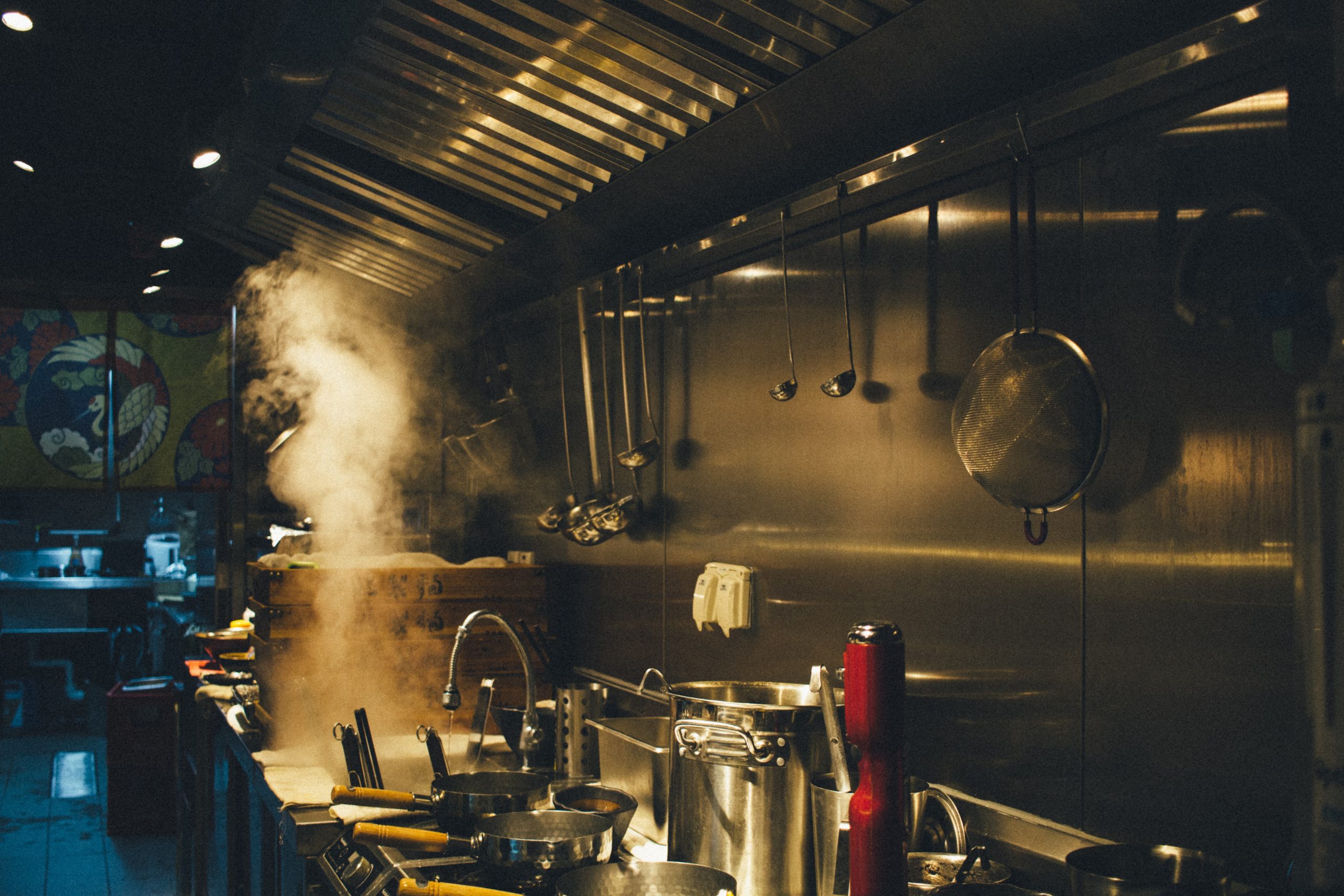
Tags: all restaurant cleaning, Commercial Kitchen Cleaning, commercial kitchen cleaning denver, commercial restaurant cleaning, grease duct cleaning, Grease Management, kitchen equipment cleaning, range hood cleaning
